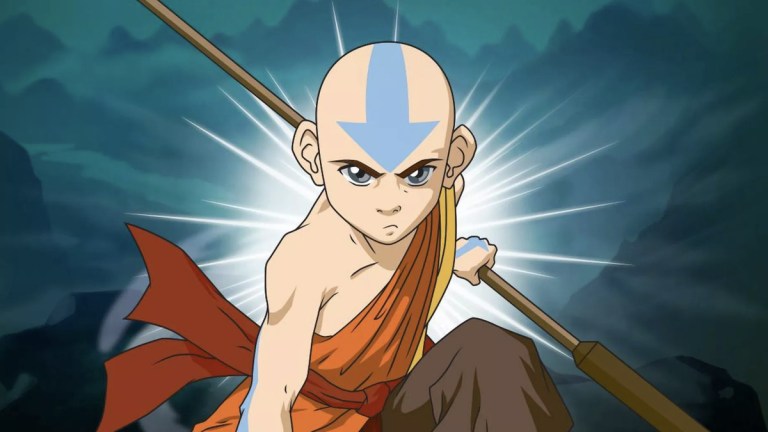Avatar: The Last Airbender Showrunner Defends the Necessity of a Remake
Why remake a TV show that is already perfect? Netflix's Avatar: The Last Airbender showrunner Albert Kim has some suggested answers.

Netflix’s live-action adaptation of beloved fantasy animation Avatar: The Last Airbender hasn’t gotten off to the best pre-production start. Last year, Avatar: The Last Airbender creators Michael Dante DiMartino and Bryan Konietzko departed the Netflix adaptation over creative differences, and have since set up Avatar shop at Nickelodeon, launching Avatar Studios, which will create original content spanning animated series and movies based on both Avatar: The Last Airbender and sequel series The Legend of Korra. Meanwhile, Netflix continues to move forward with their live-action adaptation. Yesterday, they announced the cast and creative team remaking the animation, and showrunner Albert Kim (Sleepy Hollow) was given the unenviable task (which comes along with some much more enviable tasks) of speaking to those who might be hesitant to board a remake of a TV series that, to many, is already close to perfect.
“My first thought was, ‘Why? What is there I could do or say with the story that wasn’t done or said in the original?'” wrote Kim, who first tells a sweet story of watching the original Avatar along with his young daughter years ago. “A:TLA had only grown in popularity and acclaim over the last decade and a half, which is a testament to how complete and resonant a narrative experience it had been. So if it ain’t broke, why fix it?”
Kim goes on to make several arguments for the purpose of a live-action remake of Avatar: The Last Airbender—unsurprisingly, none of them being that Netflix wants to make a boatload of money off of this very popular story property (a primary reason for the making of most if not all commercial productions and one producers tend not to highlight to the target audience). Instead, Kim gives some other reasons: First, he speaks about the evolution of VFX technology that could “bring a rich new visual dimension to a fantastic world.” While this argument is often based on the flawed logic that live-action is superior to animation, it will be exciting to see elements of the Avatar world (I’m looking at you, Appa) brought to live-action life. There’s no arguing that the mediums have different strengths and weaknesses.
Next, Kim highlights the opportunity to “reimagine a story that had originally been told in self-contained, half-hour episodes as an ongoing serialized narrative”—something he has said before. It feels inaccurate to call The Last Airbender something other than an ongoing, serialized story, as it is clear from the beginning that DiMartino and Konietzko have a larger story to tell, but this does give us some insight into what format the live-action adaptation might take. Namely, that the episodes will probably be longer than a half hour, and that Kim will not be afraid to lean into some of the less plot-driven moments of the story. “That meant story points and emotional arcs we’d loved in the original could be given even more room to breathe and grow,” elaborated Kim.
Kim’s most important point? A live-action adaptation of Avatar: The Last Airbender is an opportunity for greater Asian and Indigenous representation in a time when we desperately need it. “This was a chance to showcase Asian and Indigenous characters as living, breathing people,” wrote Kim. “Not just in a cartoon, but in a world that truly exists, very similar to the one we live in.” I wouldn’t necessarily call the world of Avatar “very similar to the one we live in,” but the need to see more and better representation of both Asian and Indigenous in our mainstream media is vital. The Last Airbender has a world populated by powerful and diverse characters and, unlike M Night Shyamalan’s whitewashed 2010 cinematic adaptation of The Last Airbender, the casting for the Netflix series reflects that. If the live-action adaptation is true to the themes of the original series, it will situate these characters of color in an adventure story that explores how imperialism destroys cultures.
Writing about his initial experience watching the original Avatar, Kim says: “It also wasn’t lost on me that this was a world that drew from Asian cultures and legend, which is a rarity to this day and something I appreciated as an Asian-American father. That my daughter was able to see characters who looked like her on screen was more than just entertaining. It was a gift … Somewhere out there, a young kid is sitting glued to their TV, waiting to be taken on an incredible journey. And I want to take them on it.”
Will you be watching the Netflix Avatar: The Last Airbender? Have you seen the original? Let us know in the comments below.
